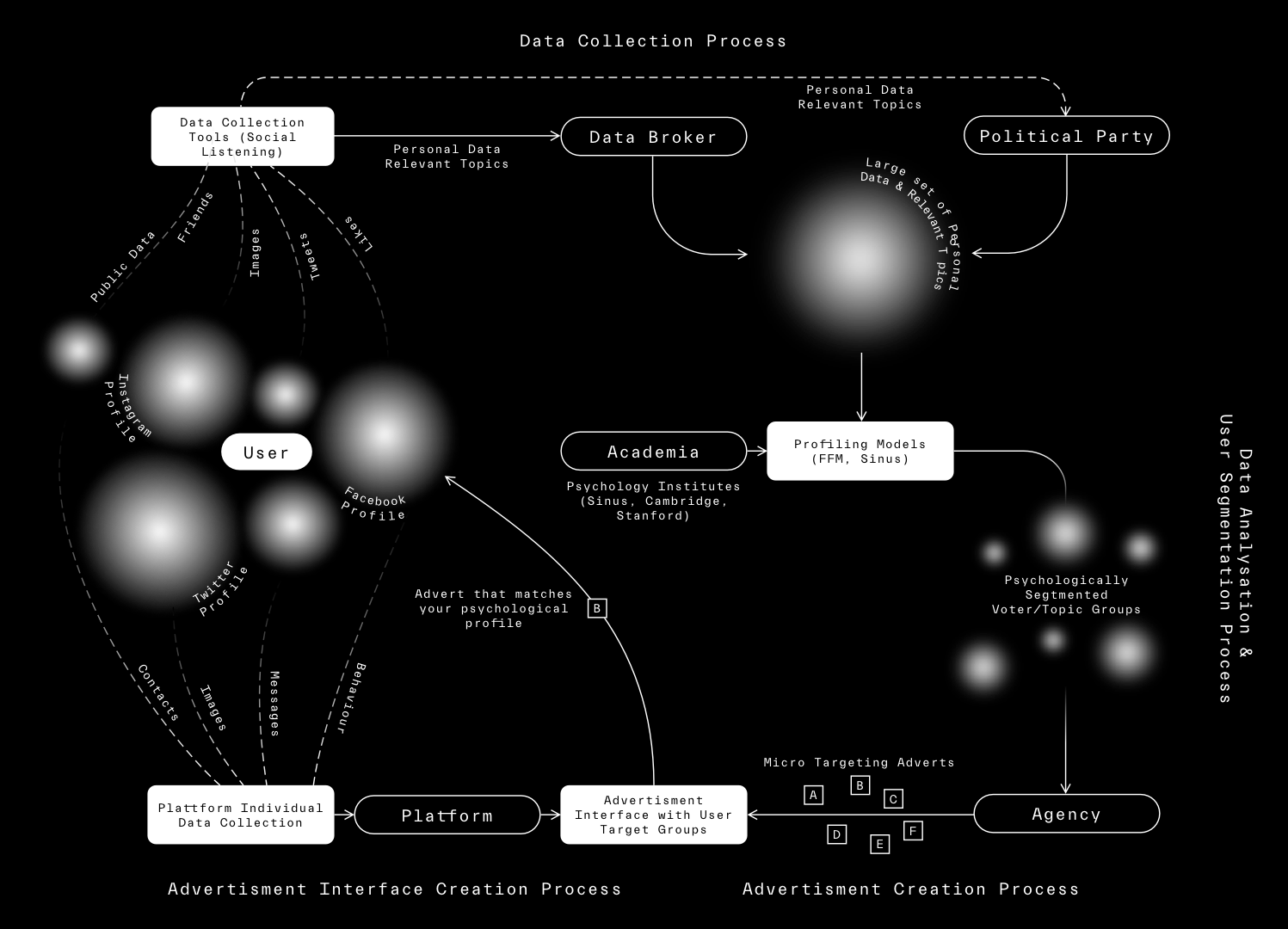Predicting Voters


Social networks like Facebook, Twitter, and many others are becoming increasingly important for political communication. Simultaneously, the misuse of personal data is of rising concern for many policymakers. Personal data collected from social networks offer political actors the possibility to predict the behavior of their potential voters. Methods of psychology are used for target group segmentation and are the basis for persuasive political adverts (Micro-Targeting). Cambridge Analytica used Micro-Targeting during the US elections in 2016 and it is assumed to have contributed to Trump's election victory.
However, studies that examine the significance of personal data for political communication in Switzerland are rare to find. Although the elections in October 2019 showed clearly that Swiss parties increasingly use personal data for their campaigns. During my master studies, I examined the political significance of digitization and personal data in particular. I developed a research plan that aims at investigating how Swiss parties collect personal data to predict attitudes, motivations, and behaviors from potential voters, how this influences the design, message, and target of their advertisement, and with whom they collaborate in this process.
For more information have a look at the project website.
Time
2018–2020
Client
Self-initiated
Place
Bern, Switzerland
Type
research
